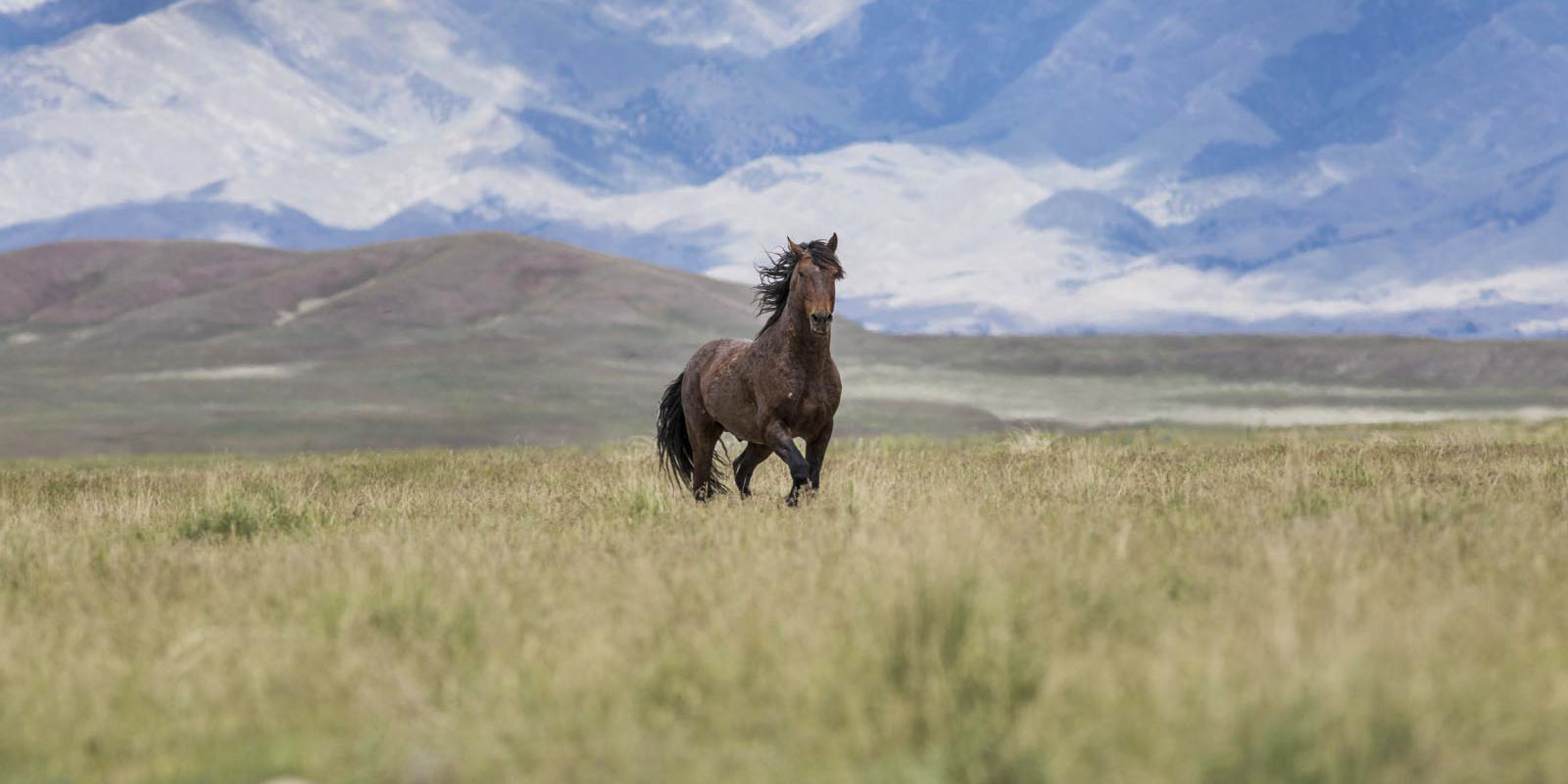The Americans are big fans of the wild horses roaming the nation’s public lands, and have been pretty clear where they stand on their protection.
In survey after survey, Americans have expressed overwhelming support for preserving these wild animals, which are long entrenched in our national memory, imagination, imagery and history. More than three decades ago, Congress unanimously passed the Wild Free-Roaming Horses and Burros Act of 1971 to great public acclaim, reinforcing the status and value of these national symbols.
Recent polls show that 80 percent of Americans support protecting wild horses on our public lands and oppose slaughtering them. Why, then, does the government keep pursuing efforts to eradicate them as if they were some sort of insidious infestation?
The latest death threat against these icons of the American West came earlier this year from the U.S. Department of the Interior, which has proposed budget language that would undo a ban on killing wild horses or shipping them to foreign slaughterhouses — all in the name of providing federal wildlife managers “more flexibility” in managing horse numbers on the range.
The House Appropriations Committee recently took up that language, and despite lawmaker after lawmaker standing up to say how much they loved horses, all supported the amendment that would lead to their widespread destruction.
But let’s be clear: No matter what label you put on it, you can’t love horses and support the mass killing of more than 90,000 of them.
The arguments that advocates of slaughter consistently make are just as consistently flawed.
Up until now, the Bureau of Land Management has used an arbitrary system of so-called “Appropriate Management Levels” to determine how many horses may inhabit certain sections of public land. These levels have been criticized and disputed, but the bureau has ignored those complaints.
The National Academy of Sciences, in a 2013 report, said that it could find no scientific basis for these levels. A number of court cases in the West have questioned the validity of the bureau’s management level system.
Nevertheless, the bureau has continued to entrench their recommendations in this arbitrary figure, with little explanation for their methodology. Even more troubling, slaughter advocates blindly repeat bureau statistics with little understanding of what they mean.
It is common sense that doing the research to demonstrate, soundly, how many horses can equitably share federal land should be required of the bureau before it proposes dire solutions like gunning down wild horses on the open range under the guise of euthanizing “excess” animals.
In recent years, Congress has been quick to solve all problems involving wild horses by jumping straight to slaughter. Congress should reject this return to barbarism. The American people have made it clear that they reject this inhumanity, and studies have shown that better options exist.
First, Congress needs to force the Interior Department to do its homework. Rather than implement a one-size-kills-all solution, the department should scientifically study how many wild horses and burros should roam the range, firmly keeping in mind that the American public wants them on public lands.
Congress should also call on the department and bureau to make increased use of fertility control to manage horses humanely on the range. Today, the bureau uses the PZP vaccine, a type of birth control administered by a dart injection, on an extremely limited basis to manage horse herds in several management areas. It should be expanding this successful work, rather than cutting the budget for it. PZP is an efficient and cost-effective solution to manage fertility and herd size, while meeting the public’s demand that wild horses be protected and preserved.
Polling has shown where the American people stand on this issue. It is not a return to brutal horse slaughter. Lawmakers must reject this inhumane answer and call for publicly-supported, long-term solutions for our wild horses. The House Appropriations Committee may have supported slaughter, but the full House of Representatives, along with the Senate, still have a voice that can protect our majestic wild horses. We hope they will do so.
Suzanne Roy is executive director of the American Wild Horse Campaign, an advocacy organization dedicated to preserving wild horses and burros in viable free-roaming herds. Roy has worked as an animal welfare professional for 25 years.. During her career, she has worked to improve the plight of elephants, chimpanzees, marine mammals and other animals both in captivity and in the wild.


